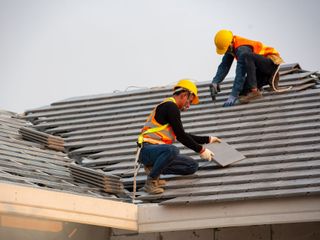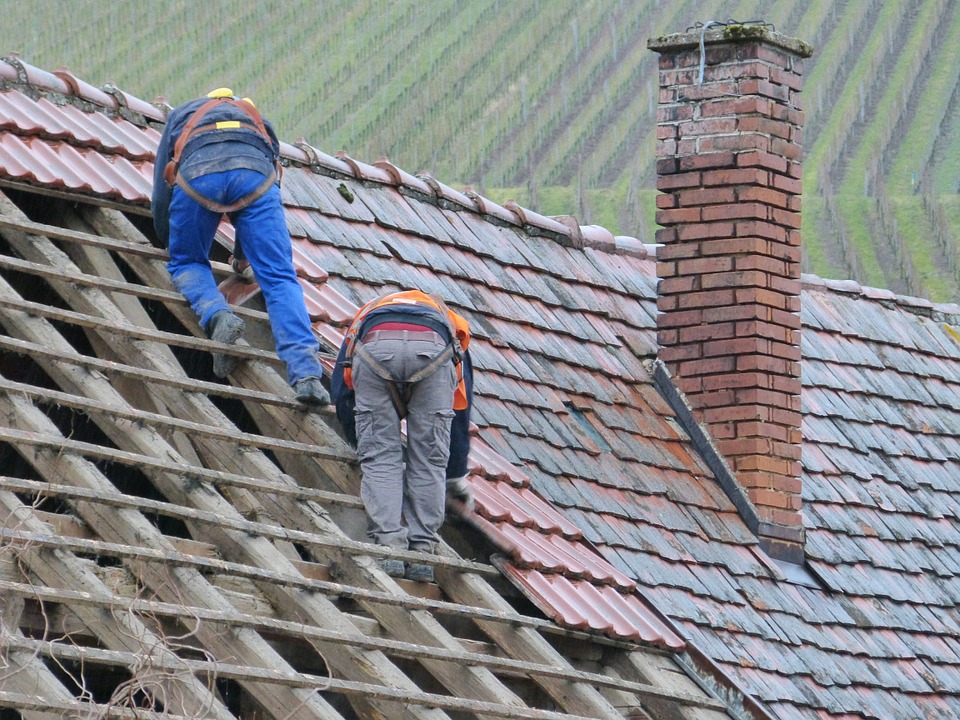Choose a certified Roofer to ensure durable roofing solutions.
Just How to Assess Various Roofing Choices for Your Structure Demands
Evaluating roofing options for your building requires a detailed technique that takes into consideration numerous variables such as the planned usage of the framework, neighborhood environment conditions, and material attributes. It is vital to consider the advantages and disadvantages of different roofing types, from asphalt shingles to steel and clay tiles, while additionally considering preliminary expenses and lasting upkeep. Furthermore, understanding energy performance and aesthetic appeal can influence your decision. As you ponder these considerations, one concern remains: which factors will inevitably lead your selection for a sustainable and visually pleasing roof covering remedy?
Assessing Your Structure's Requirements
To properly assess roof covering options, start by extensively evaluating your structure's demands. Beginning by thinking about the structure's meant usage, as different structures might necessitate differing roof specifications. Residential roofings often prioritize appearances and insulation, while business buildings might concentrate on longevity and load-bearing capability.
Next, review the neighborhood climate problems that will affect roof covering efficiency. Variables such as temperature level changes, precipitation levels, and wind patterns can affect product selection and design. A roof that stands out in a warm climate might not do also in locations susceptible to heavy snowfall or severe warm.
Additionally, analyze the architectural stability of your structure. Make sure that the existing framework can sustain the selected roof materials, specifically if taking into consideration much heavier alternatives. It is likewise essential to examine any local building codes or regulations that might dictate certain needs for roof.

Contrasting Roof Covering Products
As soon as a thorough analysis of your structure's needs has actually been finished, the next step involves comparing various roofing materials. Each material offers unique advantages and downsides, making it vital to straighten your selection with your specific requirements and scenarios.
Asphalt tiles are commonly identified for their cost and ease of installment, making them a preferred choice for property buildings. On the other hand, steel roof, understood for its toughness and durability, can stand up to harsh weather however may feature a greater preliminary investment.
Clay and concrete floor tiles supply exceptional thermal insulation and visual charm, particularly for Mediterranean-style architecture, yet they require an even more robust architectural support because of their weight. Timber shakes deal an all-natural look and good insulation homes yet may demand a lot more maintenance and are at risk to fire dangers.
Examining Cost and Budget
Examining your roof options necessitates a cautious examination of cost and budget plan considerations. The total budget plan for a roofing task consists of a number of variables, including product prices, labor costs, upkeep, and possible long-lasting cost savings. It is important to develop a clear spending plan prior to checking out particular roof covering products, as this will certainly assist the decision-making procedure and assist you stay clear of overspending.
Begin by acquiring quotes from several contractors to recognize labor costs in your region. Make sure that these quotes include all essential solutions, such as elimination of the old roofing, installation, and any extra functions, like insulation or air flow enhancements - Sylvania Roofing Contractor. Next, evaluate the cost of various roof materials, considering both preliminary setup expenses and anticipated life expectancy

Understanding Energy Effectiveness
Power efficiency plays an essential function in the choice of roof look at these guys covering products and systems, significantly affecting both energy usage and total comfort within a building. A well-chosen roof can enhance thermal performance, decreasing the need for heating and cooling down systems, which consequently reduces energy bills and reduces environmental effect.
When assessing roofing choices, consider products that show instead than absorb warmth. Light or reflective roof products can significantly lower roof surface temperature levels, leading to lower energy use during warm months. Furthermore, appropriate insulation and ventilation are vital to optimize the power performance of the entire roofing system. Insulation prevents warmth transfer, while ventilation mitigates warmth accumulation in the attic room.
Another vital variable is the roof's durability and upkeep needs. Long lasting materials that require much less regular replacement contribute to lasting energy financial savings. Moreover, the energy performance of a roof can likewise be analyzed through its conformity with established sustainability scores such as ENERGY CELEBRITY or LEED.
Thinking About Visual Appeal
A roofing's visual charm dramatically influences the general look of a building, matching its building design and enhancing aesthetic charm. Roofer. When examining roof covering options, it is vital to take into consideration how the selected product, shade, and layout will harmonize with the existing structure and community. A properly designed roof covering can boost even the simplest of buildings, transforming them right into aesthetic focal points
Different roof covering materials use various visual top qualities. For instance, standard tiles may stimulate a timeless charm, while steel roofing can impart a modern, streamlined appearance. In addition, the shade of the roof covering product plays a crucial role; lighter tones can make a structure show up more roomy, while darker tones may create a cozier ambiance.
Moreover, building components, such as dormers and eaves, can improve the roofing's visual impact. It is advisable to seek advice from specialist developers or designers to guarantee the selected browse this site roof covering alternative straightens with the overall design intent. Inevitably, a roof needs to not only give functional benefits but also add favorably to the building's aesthetic, mirroring the proprietor's taste and the personality of the surrounding atmosphere.
Conclusion
